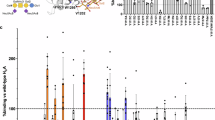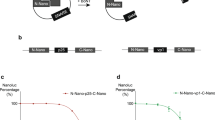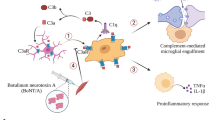Abstract
Botulinum neurotoxin (BoNT), a Category A biothreat agent, is the most potent poison known to mankind. Currently no antidote is available to rescue poisoned synapses. BoNT acts specifically by blocking neurotransmission primarily at peripheral nerve-muscle junctions causing severe flaccid muscle paralysis, which is fatal if proper medical care is not provided. The neurotoxin acts by specifically entering the presynaptic nerve endings where it interferes with the biochemical machinery involved in the process of neurotransmitter release, i.e., neuroexocytosis. Most serotypes of BoNT are known to remain active for weeks to months after entering the nerves, but BoNT/A is the most potent and long lasting in causing muscle paralysis. An effective medical countermeasure strategy requires developing a drug that could rescue poisoned neuromuscular synapses, and would include its efficient delivery specifically to presynaptic nerve terminals. Here we report rescuing of botulinum poisoned nerve cells by Mastoparan-7 (Mas-7), a peptide constituent of bee venom, that was delivered through a drug delivery vehicle (DDV) constructed from the non-toxic fragment of botulinum neurotoxin itself. We found that Mas-7 that was delivered into BoNT/A intoxicated cultured mouse spinal cord cells restored over 40% of stimulated neurotransmitter release. The rescue of the cell poisoning did not occur from inhibition of the endopeptidase activity of BoNT/A against its well known substrate, SNAP-25 that is mechanistically involved in the exocytosis process. Rather, Mas-7 induced a physiological host response apparently unrelated to SNAP-25, but linked to the phospholipase signal transduction pathway. In addition to providing the first effective antidote against botulism, our results open new avenues to study the mechanism of exocytosis, and also to examine an alternative cellular mechanism of botulinum neurotoxin action. An effective BoNT-based DDV can also be utilized for drug delivery against many neuronal and neuromuscular disorders.
Similar content being viewed by others
Article PDF
Author information
Authors and Affiliations
Rights and permissions
About this article
Cite this article
Ray, P., Singh, B., Ray, R. et al. A Targeted Therapeutic Rescues Botulinum Toxin-A Poisoned Neurons. Nat Prec (2008). https://doi.org/10.1038/npre.2008.2149.1
Received:
Accepted:
Published:
DOI: https://doi.org/10.1038/npre.2008.2149.1



